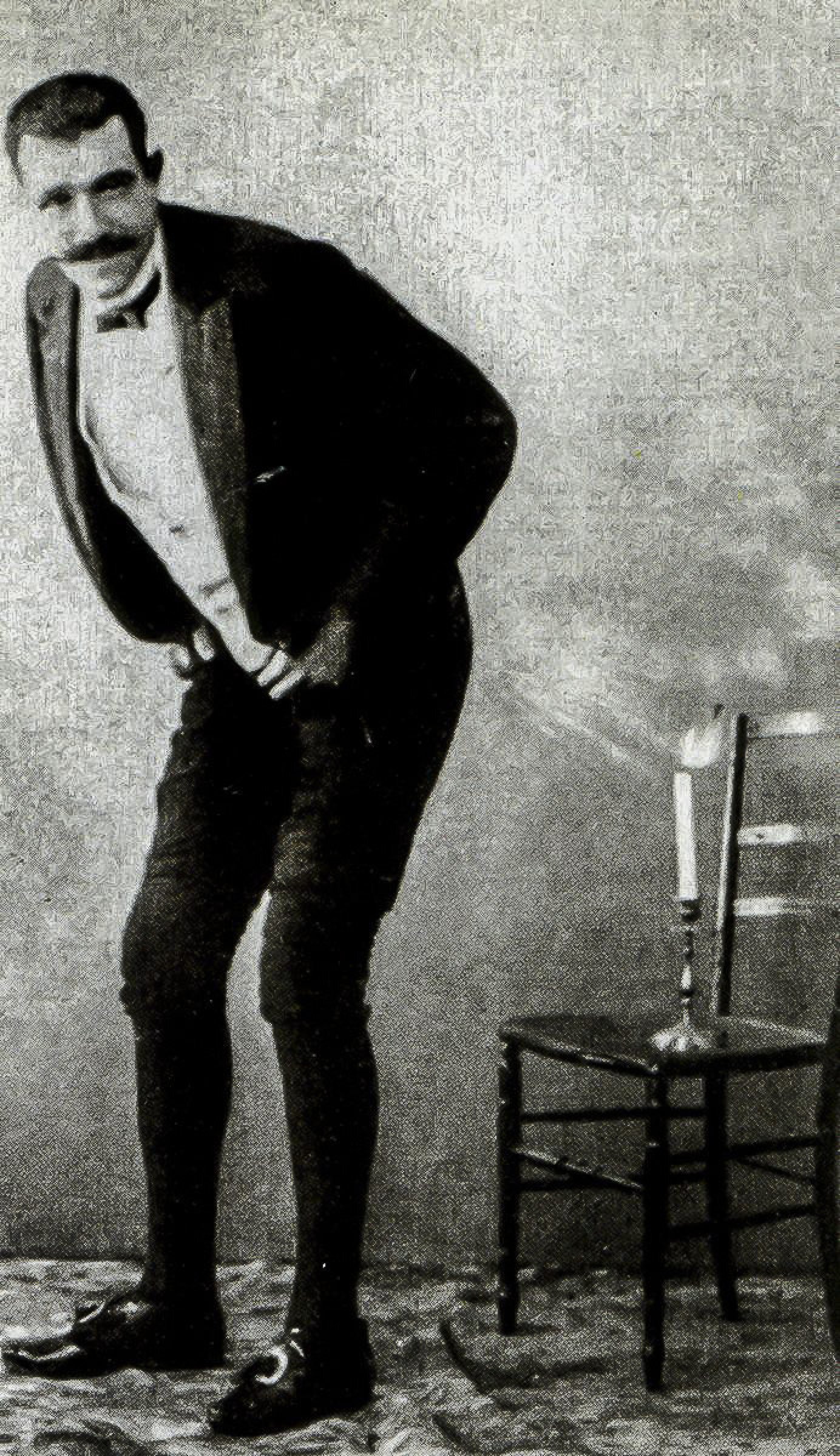
How to stop passing wind so much, foods that cause excess flatulence, how much is normal, ‘hot’ ones and why we do them in the first place
- In most cases, excessive wind can be controlled with changes to your diet and lifestyle – including eating more slowly and drinking more water
- Flatulence caused by swallowed air tends to be louder but less smelly, while that driven by digestion and bacterial fermentation is usually quieter but smellier
Everybody toots. This is a fact. The average number of times a person passes wind in a day is 13.6.
The decimal point attests to the fact that somebody has actually studied flatulence frequency. That somebody is Dr Michael Levitt, an American gastroenterologist who is an expert in flatus – the medical word for passing wind.
Each of us, on average, releases between 500 and 2,000 millilitres of gas per day via our back passages, with the average volume of a single toot between 35 and 90 millilitres.
One young man that Levitt treated passed wind up to 90 times a day – releasing an average of 5,520 millilitres of gas per day, or 62 millilitres per event. He turned out to be lactose intolerant; when that was fixed, his excessive flatulence stopped.
Maxi Schoenteich, a UK-trained osteopath and nutritional therapist in Hong Kong, says that food intolerance is one reason you may pass wind more often.
But there are other reasons too: dietary and lifestyle factors play a great role in gassiness.
“However, reducing the amount until the gassiness passes and then gradually increasing the amount of fibre- and sulphur-containing foods can help reduce gassiness.”
What causes flatulence? Microorganisms that live for the most part in the colon consume and help to break down undigested food, in turn generating their own waste products. More waste usually means more gas – and it can be pretty smelly.
Passing gas is natural and does not usually need to be controlled, Schoenteich says.
“It is a normal biological process that happens to everyone. When we eat and drink we also swallow small amounts of air. The food is then digested, and gasses including carbon dioxide, methane and hydrogen build up within the intestines. The intestines contract and move their contents, including the gas, towards your anus, and when your body lets out those gases, you fart.”

What causes “hot” flatulence? (You know what that is.) It is often the same culprits that are behind creating too much wind: food intolerances, possibly lactose intolerance, as in Levitt’s super farter, or even Coeliac disease – a condition in which your immune system attacks your own tissues when you eat gluten.
Schoenteich points to recent research in animals that suggests that hydrogen sulphide – one of the major components of smelly gas, the one that gives it that “rotten egg” smell – might provide some health benefits in humans. The study was based on the idea that mitochondria, the part of cells that help produce energy, could benefit from this gas.
The researchers created a compound called AP39 that mimicked hydrogen sulphide and exposed cells to the gas. Early results suggest that up to 80 per cent of the mitochondria exposed to this gas were preserved. This could have far-reaching effects on many conditions linked to cell death caused by mitochondrial function.
What’s with the noise though? Some people pass wind incredibly loudly. Take Frenchman Joseph Pujol (1857-1945), for example. Best known by his stage name Le Pétomane, from the French verb péter, “to pass wind”, and mane, “maniac”, he made a living out of the noises he managed to orchestrate from his rear end, including the sound of cannon fire and thunder, and his renditions of the French national anthem. His audiences included King Leopold II of Belgium and apparently the founder of psychoanalysis, Sigmund Freud.
The noise, Schoenteich says, is linked to vibrations of the rectum which occur when gas is released from the body. “The volume of gas released and the tightness of the sphincter muscles [located at the end of the rectum] each play a part in the sound effects. You can manipulate the sound by relaxing or tightening the anal sphincter and diaphragm to change pitch, volume and duration of sounds [as presumably Pujol did].
“Passing air with less force and making dietary changes can all help to release wind more gracefully. Interestingly, if swallowed air is triggering your farts, they tend to be louder but less smelly. If your fart is primarily driven from digestion and bacterial fermentation, it will tend to be smaller in volume and sound, but smellier.”

While this might seem far-fetched, flatulence-smelling as a diagnostic tool gets credibility from our canine friends. Dogs have been trained to detect prostate cancer from patients’ urine and have correctly identified colorectal cancer from stool samples.
She encourages her clients to let them flow. So there you go: relax and let rip.

